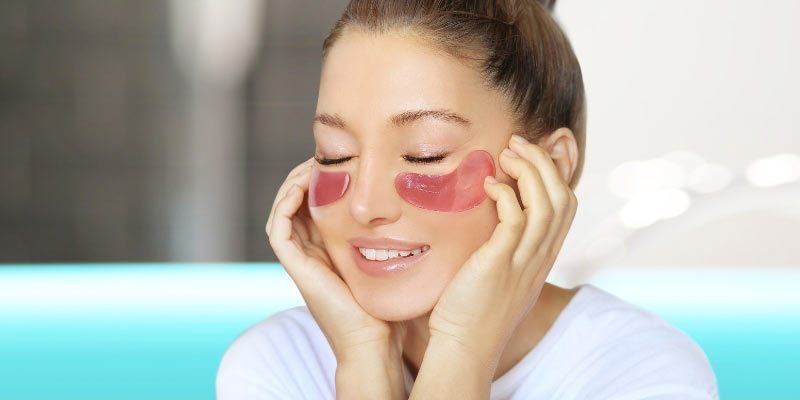Weight loss may improve health, self-esteem, and quality of life. Shedding weight boosts energy, reduces chronic illness risk, and boosts confidence. However, loose skin may be a challenge for many weight reduction journeys. This article discusses weight loss-induced loose skin, its causes, prevention, and remedies. It helps people who have lost weight but now have extra skin to make health and wellness choices.

Causes of Loose Skin After Weight Loss:
Understanding why weight loss causes loose skin is critical to solving the problem. Skin elasticity matters. Collagen and elastin keep skin firm and flexible. After a significant weight loss, the skin may not compress as fast as the fat, resulting in loose or sagging skin. As we age, our skin loses suppleness.
Skin response to weight reduction might also be genetic. Some people have skin that snaps back into place genetically, while others struggle. Rapid weight reduction might worsen it. Too much weight loss too rapidly prevents the skin from adapting, causing loose skin. Therefore, it's essential to know that weight loss pace affects loose skin.
Prevention Strategies:
Weight reduction plans with specific tactics can prevent loose skin. Gradual weight reduction is crucial. Moderate weight loss allows your skin time to acclimatize to your altered physique. Focusing on overall health and eating nutritious foods is important. Proper diet and hydration are essential for skin health.
Skin elasticity may be improved by strength training and resistance training. Build lean muscle and improve body composition to decrease loose skin. A balanced exercise regimen, including cardio and strength-training, helps improve skin firmness. Muscle mass affects skin adaptation to body composition changes.
Potential Solutions for Loose Skin:
Those with loose skin have numerous options. Retinol, hyaluronic acid, and collagen-boosting creams and lotions are non-surgical choices. When used regularly, these items enhance skin texture and firmness.
Massages and skin brushing may increase blood flow and collagen formation. Vitamin C, E, and zinc help collagen formation; diet and supplementation may improve skin health. A balanced, antioxidant-rich diet helps preserve and promote skin health.
Surgery like body contouring or belly tucks may be chosen. These treatments remove extra skin and restructure the body for a more toned look. Before surgery, see a doctor or board-certified plastic surgeon. They may evaluate your requirements and provide a solution.
Lifestyle and Psychological Aspects:
Psychological and emotional issues might arise from loose skin. After significant weight reduction, loose skin causes mixed feelings in many people. You must recognize these sentiments and get help when required. Positivity, self-acceptance, and tolerance are needed to manage loose skin. Remind yourself that loose skin is a sign of your significant progress.
Support from friends, family, or online groups may be invaluable. Sharing and getting advice from others who have had similar issues may be comforting. Therapy or counseling may also assist with loose skin's emotional effects.
Management of loose skin's influence involves confidence and attire. Well-fitting, supportive clothing reduces loose skin and boosts confidence. Celebrate your successes and concentrate on your improved health and well-being to go from loose skin to well-being.
Embracing a Balanced Lifestyle:
While loose skin is a genuine worry, a healthy and balanced lifestyle should always be the priority. Weight reduction reduces the risk of chronic illnesses, improves mobility, and boosts vitality. Better health has many physical and emotional advantages, not just skin beauty. Long-term health depends on a balanced and sustained lifestyle after weight reduction.
This lifestyle should include balanced eating, exercise, sleep, and stress management. These variables improve skin and general wellness. Hydration and a diet rich in antioxidants, vitamins, and minerals may boost skin health. Combining aerobic and strength training may preserve muscle mass and tighten skin. Sleep is essential for skin repair and regeneration; stress management helps avoid skin problems.
The Ongoing Journey:
Let loose skin be part of the journey, not the conclusion. Weight reduction is impressive and should be appreciated. Loose skin symbolizes your perseverance and power. As your body adapts, loose skin may improve. It takes patience and self-compassion and differs by individual.
Maintaining your health and workout program may reduce loose skin. Building lean muscle via strength exercises helps fill up slack areas and tone you. Finally, loose skin is part of your journey and shouldn't stop you from prioritizing your health.

The Role of Body Positivity:
Understanding that body positivity affects self-image is vital when coping with loose skin after weight reduction. The body positivity movement promotes self-acceptance and body positivity regardless of attractiveness standards. Body positivity may help you love your body, loose skin and all.
A good body image empowers and improves mental wellness. Positive factors like supportive friends and body diversity networks may boost body image. Remember that each body has a unique path. Be gentle to yourself and acknowledge your health progress.
Clothing Choices and Confidence-Boosting Strategies:
While you concentrate on your health and embrace body positivity, your wardrobe choices might affect how you feel about your looks. Well-fitting, supportive clothing reduces loose skin and boosts confidence. Choose clothes that highlight your assets and physique. Supportive undergarments streamline your silhouette, boosting confidence.
Setting realistic objectives and appreciating successes may keep you motivated. Reward your exercise, diet, and other well-being accomplishments. Self-confidence and progress recognition improve mental health and resilience.
Embracing Your Success:
Finally, loose skin is average following principal weight reduction, but it shouldn't overwhelm your achievement. Improved health has many physical and emotional advantages. Loose skin shows your hard work, devotion, and drive as you develop.
Loose skin is a difficulty on your route to health, like the most remarkable life successes. Understand the reasons, practice preventative tactics, examine remedies, and embrace body positivity to succeed in your health journey. The appearance of loose skin should not belittle your successes but rather remind you of your strength and endurance. Recognize your successes and prioritize your long-term health and well-being, knowing you can overcome obstacles.
Conclusion:
In conclusion, many people have loose skin following significant weight reduction, but it should not overshadow the many advantages of weight loss. It is crucial to understand loose skin's origins, prevent it via slow and consistent weight reduction, and find remedies that meet your requirements and objectives. A healthy lifestyle after weight reduction is essential to well-being.
Loose skin's psychological and emotional components, such as self-acceptance and support, are also crucial. Instead of a hindrance, loose skin should be a sign of your progress and development. Embrace your health journey, prioritize self-care, and concentrate on long-term well-being. The loose skin you encounter should motivate you to continue your journey to health and vitality, reminding you of your power and commitment.




